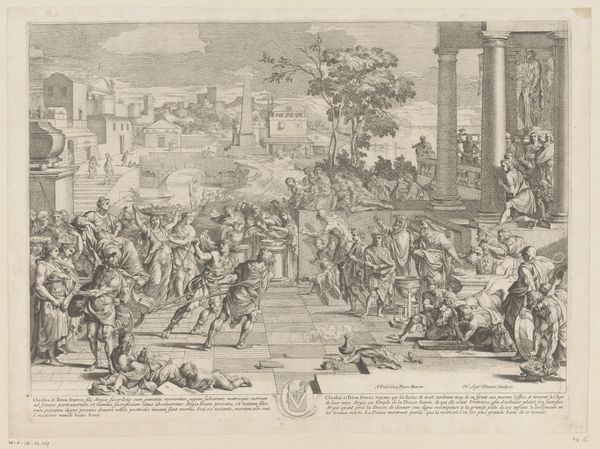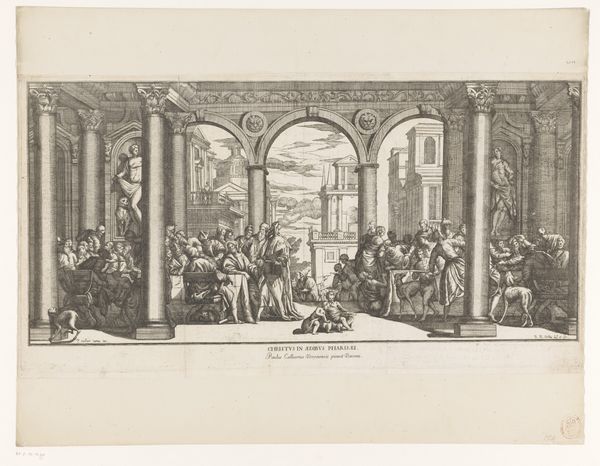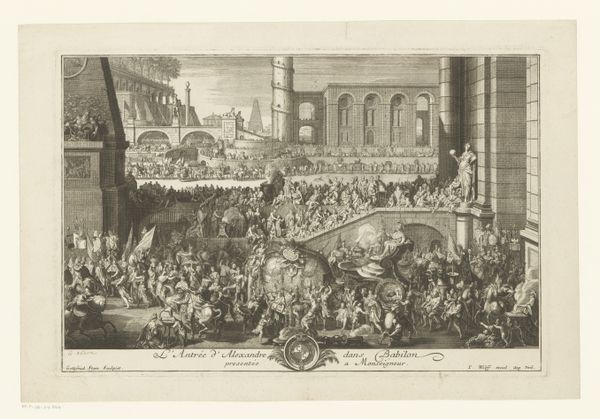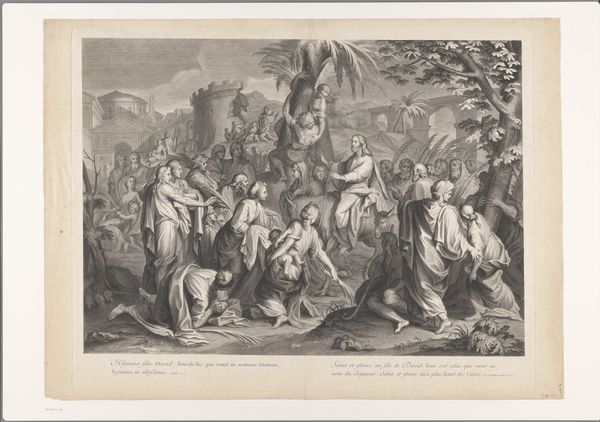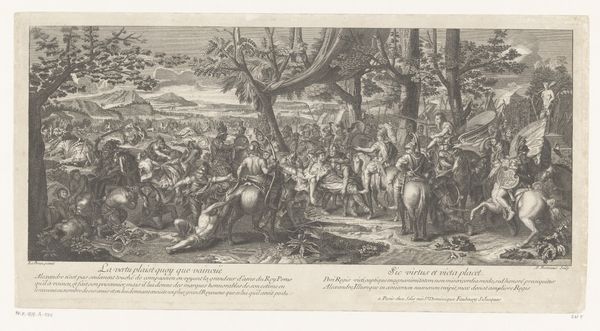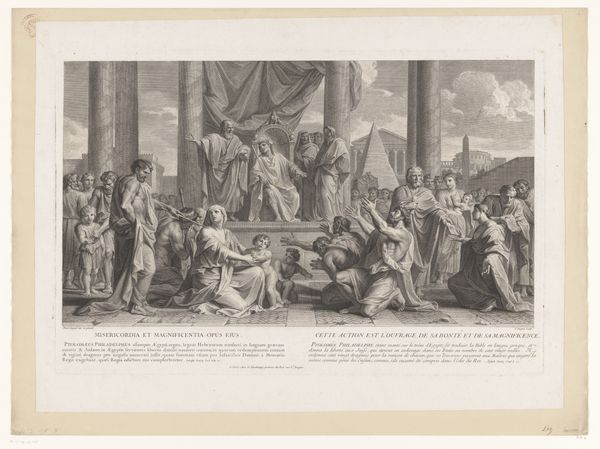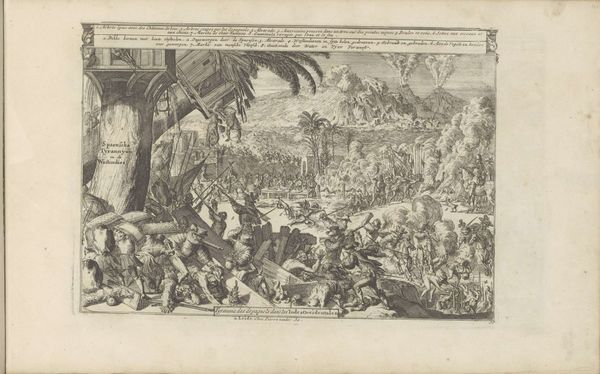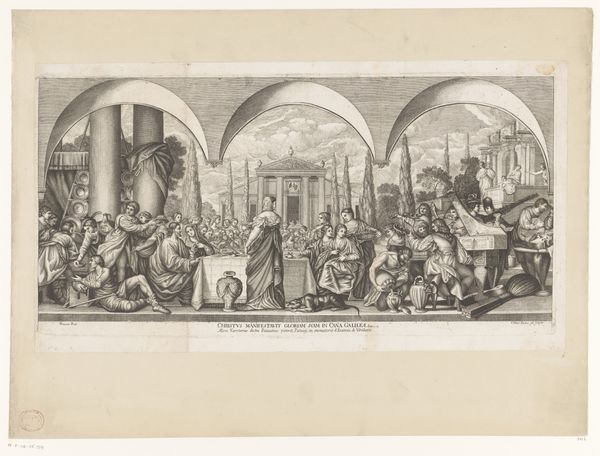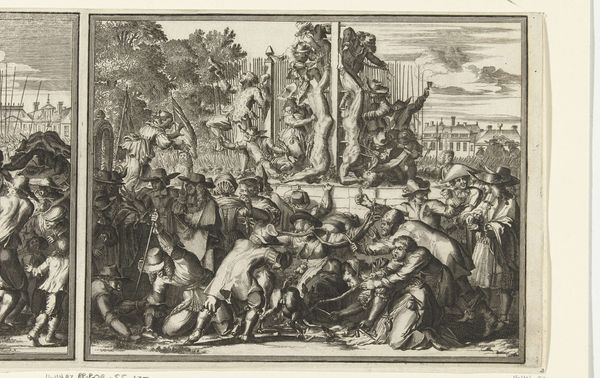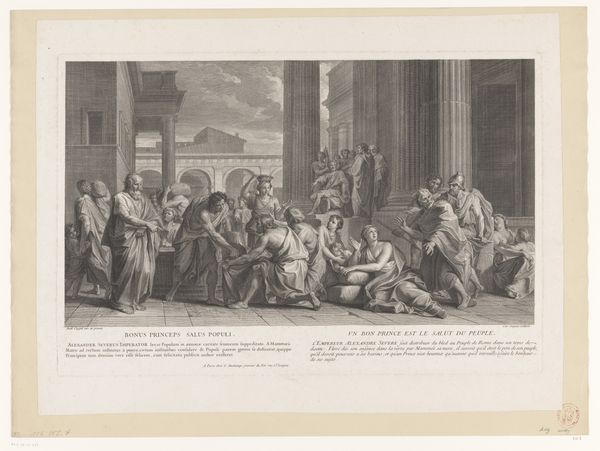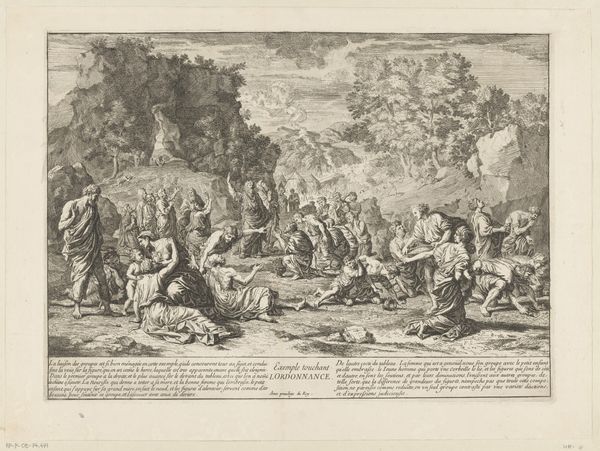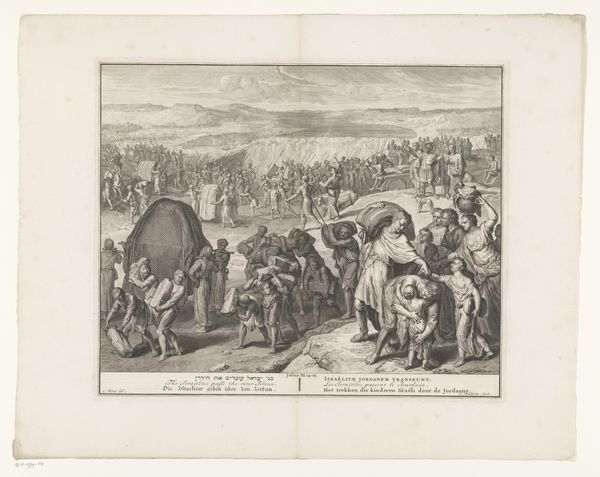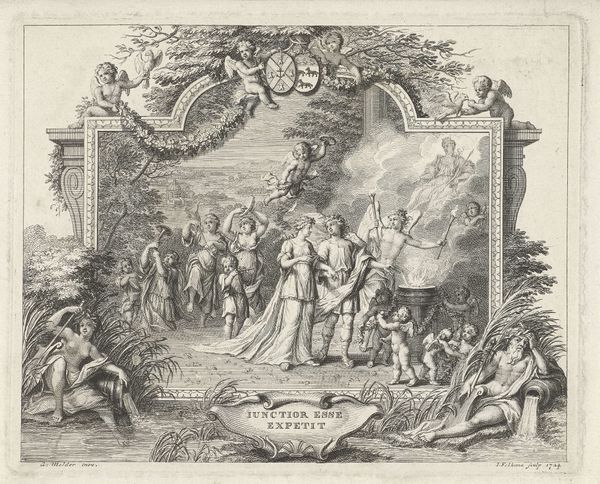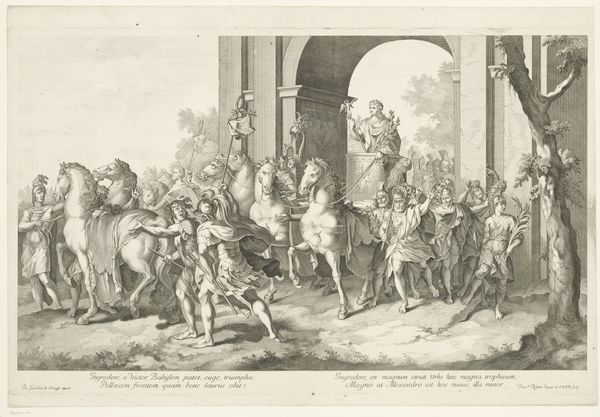
print, engraving
#
allegory
#
baroque
# print
#
old engraving style
#
figuration
#
history-painting
#
engraving
Dimensions: height 293 mm, width 607 mm
Copyright: Rijks Museum: Open Domain
This print, "Triumph of Constantine after his victory over Maxentius" was made by an anonymous artist. It's an etching, which is a printmaking technique that uses acid to cut into a metal plate, in this case, copper. The artist would have coated the plate with a waxy, acid-resistant substance, then drawn the image onto the plate with a sharp needle, exposing the metal beneath. The plate is then immersed in acid, which bites into the exposed lines, creating grooves. These grooves hold ink, which is then transferred to paper under high pressure. Notice the incredible detail, achieved through the skilled manipulation of line and tone. Each tiny mark represents a deliberate action by the artist, a commitment of time and skill. The etching process, like all forms of making, involves a dialogue between intention and the inherent qualities of the materials. The acid bites, the ink flows, the paper absorbs, and the image emerges. It's a reminder that even in reproduction, the hand of the maker leaves its mark.
Comments
No comments
Be the first to comment and join the conversation on the ultimate creative platform.
